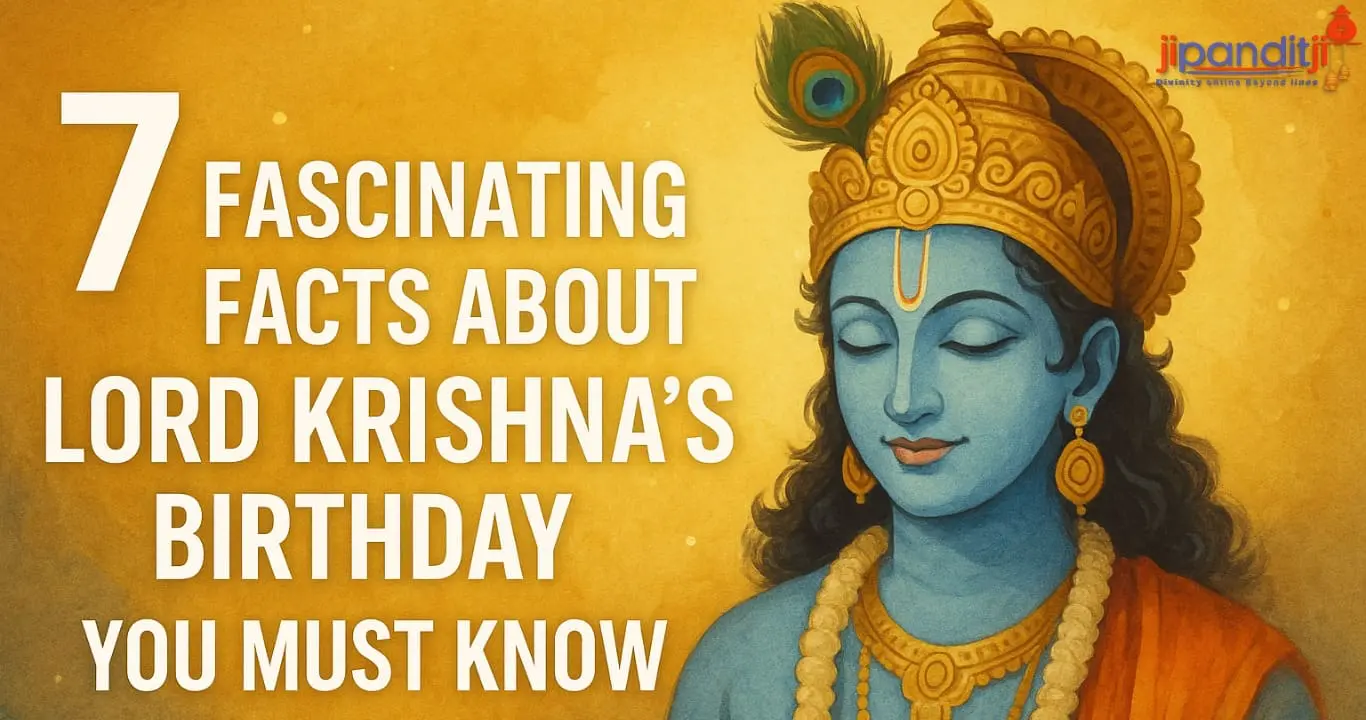7 Fascinating Facts About Lord Krishna’s Birthday You Must Know

Celebrating the Birth of the Divine Strategist
Janmashtami, also known as Krishna Janmashtami or Gokulashtami, is one of the most significant Hindu festivals celebrated across India and beyond. It marks the birth of Lord Krishna, the eighth avatar of Lord Vishnu, and the divine figure behind the Bhagavad Gita—an eternal guide to righteousness, duty, and spiritual wisdom. But beyond festive sweets, Dahi Handi events, and devotional songs lies a deeper question: Why is Janmashtami celebrated with such devotion and grandeur?
In this blog, we delve into the mythological, cultural, and spiritual significance of Janmashtami. Whether you’re a devotee, a cultural enthusiast, or someone curious about Indian festivals, here’s everything you need to know about Lord Krishna’s birthday and why millions observe it with faith, joy, and tradition.
All You Need to Know About Janmashtami
1. The Divine Birth: Who is Lord Krishna and Why Was He Born?
According to Hindu scriptures, Lord Krishna was born over 5,200 years ago in Mathura, Uttar Pradesh, on the eighth day (Ashtami) of the Krishna Paksha in the month of Bhadrapada. His birth took place in a prison cell, to Queen Devaki and King Vasudeva, under the oppressive rule of the demon king Kansa, who was Devaki’s brother.
Krishna’s birth is more than a historical moment—it symbolizes the victory of good over evil, light over darkness, and divine justice over tyranny. Lord Krishna was born to restore Dharma (righteousness), protect the innocent, and destroy evil forces.
“Whenever there is a decline in righteousness and an increase in unrighteousness, O Arjuna, at that time I manifest Myself on earth.” — Bhagavad Gita 4.7
2. Why Is Janmashtami Celebrated at Midnight?
One of the unique features of Janmashtami is its midnight celebration, which coincides with the exact time Lord Krishna was born. The timing represents the divine intervention during the darkest hour—both literally (night) and metaphorically (age of evil). Devotees observe fasts, chant mantras, and perform special midnight Krishna Abhishekams (ritual baths) and pujas, marking the divine arrival of the Supreme Being in human form.
3. What Are the Spiritual Benefits of Celebrating Janmashtami?
Janmashtami is not just a ritualistic festival—it offers a path to self-purification, spiritual reflection, and divine connection. Observing this day with sincerity is believed to bring:
- Liberation from past karmas
- Mental peace and clarity
- Increased devotion (Bhakti Yoga)
- Strengthening of family bonds through puja rituals
- Prosperity and happiness
Psychologists also note that participating in cultural festivals improves emotional well-being and boosts social connection—making Janmashtami not only spiritually enriching but also mentally fulfilling.
4. How Is Janmashtami Celebrated Across India?
From Mathura and Vrindavan to Dwarka and Mumbai, every region brings its own flavor to Janmashtami celebrations.
- Dahi Handi in Maharashtra: Symbolizes Krishna’s mischievous side, where human pyramids break an earthen pot filled with curd.
- Raslila Performances in Vrindavan: Theatrical representations of Krishna’s youthful pastimes with Radha and the Gopis.
- Jhulan Yatra: Krishna idols are placed in decorated swings, recalling the joyful days of his childhood.
Cities like Mathura witness a surge of over 800,000 visitors during Janmashtami week, underlining its massive cultural and religious importance.
5. Why Is Fasting Important on Janmashtami?
Devotees fast throughout the day, breaking it only after the midnight birth ritual. Fasting is considered an act of discipline, devotion, and spiritual detoxification. It allows the mind to stay focused on divine remembrance and offers a way to sacrifice worldly pleasures in honor of Lord Krishna.
Some observe Phalahar fast (fruit diet), while others observe a Nirjal fast (without food or water). Whichever the form, the intent remains rooted in surrender and purity.
6. What Lessons Does Janmashtami Teach in Today’s World?
Even in modern times, the teachings of Krishna are deeply relevant. Whether it’s his message in the Gita about doing one’s duty without attachment or his life filled with compassion, courage, and wisdom—Krishna’s values offer solutions to today’s emotional, ethical, and spiritual challenges.
Key lessons include:
- Detachment from ego and results
- Balanced life amidst chaos
- Dharma (righteous duty) over comfort
- Leadership with humility
The Festival That Transcends Time
Janmashtami isn’t just about celebrating a birthday. It is a celebration of divine love, cosmic justice, and timeless wisdom. As millions chant Krishna’s name and relive his stories, they aren’t just remembering a deity—they’re embracing hope, righteousness, and joy.
In a world full of complexities, Lord Krishna’s life remains a beacon of light. Whether you celebrate through fasting, singing bhajans, or just reflecting on the teachings of the Gita—Janmashtami is a personal journey into spirituality and devotion.

